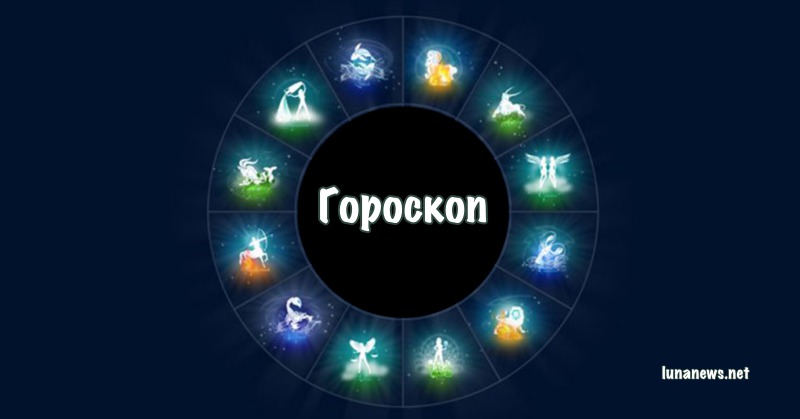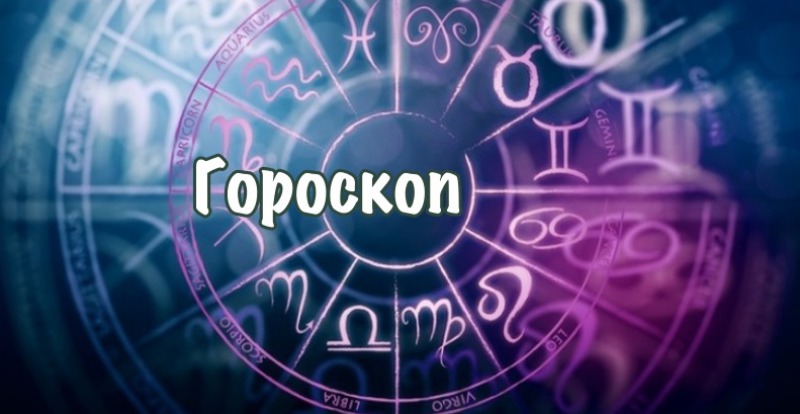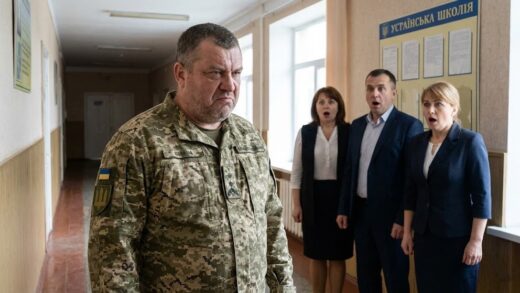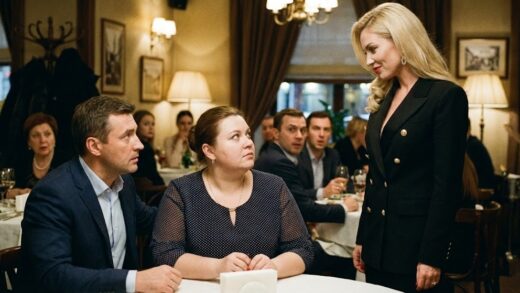I need to speak with someone in charge. He makes his way to the galley where Marion is preparing the meal trays. Their conversation is just out of earshot, but Zora can see Marion’s posture stiffen.
After a minute, Marion picks up the cabin phone, her expression grave. Three minutes later, the captain emerges from the cockpit. Captain Robert Chen, a 25-year veteran pilot with silver temples and a commanding presence, listens as Harrison speaks urgently, gesturing occasionally toward row two.
Captain Chen’s expression remains neutral, but his eyes flick toward Zora several times during the conversation. Finally, he approaches her seat. Hello there, he says kindly.
I’m Captain Chen. What’s your name? Zora Rockefeller, sir, she replies, her voice clear despite the anxiety evident in her eyes. The captain’s eyebrows rise slightly.
Rockefeller, that’s quite a distinguished name. Are you traveling to Chicago by yourself today, Zora? Yes, sir, my father will be on the next flight. He had an important meeting.
She doesn’t mention it’s with an oncologist. I see, Captain Chen nods thoughtfully. And how old are you, Zora? Eleven, sir, twelve in December.
Captain Chen turns to Harrison, who has followed him back to the row. Mr. Whitfield, as I explained, our policy allows unaccompanied minors to fly in any cabin class. Miss Rockefeller has a valid ticket for seat 2A, and there appears to be no issue with her traveling in first class.
Harrison’s frustration boils over. This is unacceptable. I’ve been a loyal customer for 15 years.
I’m trying to prepare for a crucial meeting and this. This arrangement is simply not conducive to a productive flight. Surely there must be someone else willing to switch seats.
The silver haired woman across the aisle speaks up again. Young man, I fail to see how this child’s presence is preventing you from working. She’s been nothing but quiet and well mannered.
Mrs. Abernathy, please, Captain Chen says gently. Let me handle this. He turns back to Harrison.
Mr. Whitfield, all seats in first class are occupied and we cannot compel another passenger to switch. If you’re unable to work in your assigned seat, we can see if there’s availability and economy, though I should warn you that we’re flying at nearly full capacity today. Harrison’s face flushes deep red.
Economy? I paid for first class, as did Miss Rockefeller’s family, Captain Chen replies evenly. The standoff continues for several tense seconds before Harrison makes another crucial misstep. This is ridiculous, he says loudly.
I want to see her boarding pass. I want proof that she’s supposed to be in first class. A murmur of disapproval ripples through the cabin.
Captain Chen’s expression hardens slightly. Mr. Whitfield, we don’t demand to see other passengers boarding passes once they’ve been seated. Well, maybe you should start, Harrison retorts, because something isn’t right here.
Look at her and look at this cabin. One of these things doesn’t belong. The cabin falls silent.
The implication hangs heavy in the air. Captain Chen’s voice, when he speaks, is quiet but firm. Mr. Whitfield, I need you to return to your seat immediately or we will have to take further action.
Harrison stands his ground. I want to speak to your supervisor. I want this sorted out now.
Robert, Marion says, approaching with the passenger manifest clipboard. Perhaps I can help clarify the situation, she looks at Zahra. Miss, would you mind telling us your full name for the record? Zahra sits up straighter, her chin lifting slightly in a gesture unconsciously mirroring her father’s.
Zahra Alina Rockefeller, she says clearly. Marion flips through the manifest, finding the name, and that’s when it happens, the moment when everything changes. The clipboard slips from her fingers, clattering to the floor.
Papers scatter across the aisle. Captain, she says, her voice barely audible over the ambient hum of the engines. We need you in the immediately.
It’s regarding the seating issue in first class. Her eyes never leave the child’s face as she whispers. Sir, the passenger’s last name is Rockefeller, Zahra Alina Rockefeller.
The cabin falls into a hush so profound that the soft whoosh of the air circulation system sounds thunderous by comparison. Three rows back, an elderly woman gasps audibly. Harrison, who moments ago had been insisting this child couldn’t possibly belong in seat 2A, now tugs nervously at his collar.
Captain Chen recovers first. Miss Rockefeller, he says, a new note of deference in his voice. Please accept our apologies for this disturbance.
We’ll ensure you have a comfortable flight. Zahra simply opens her book again, her well-worn copy of To Kill a Mockingbird, seemingly oblivious to the adults frozen around her. But inside, her heart pounds with a mixture of embarrassment, anger, and a sad recognition.
It shouldn’t take a famous last name for people to believe she belongs. Marion quickly gathers the fallen papers, her cheeks flushed with embarrassment. Harrison stands frozen, suddenly aware that the tables have dramatically turned.
The other passengers watch with expressions ranging from shock to vindication, particularly the silver-haired Abernathies across the aisle. Captain Chen turns to Harrison, his voice low but carrying an unmistakable edge of authority. Mr. Whitfield, please return to your seat.
We’ll be serving lunch shortly. Harrison sinks into 2B, his earlier bravado entirely evaporated. The implications of what has just transpired are still dawning on him.
He has just made a very public scene about the daughter of one of America’s most historically wealthy and influential families. As Captain Chen returns to the cockpit and Marion resumes the meal service, a palpable shift has occurred in the cabin. Passengers who had been silent observers now cast sympathetic glances toward Zora and disapproving looks at Harrison.
The silver-haired Mrs. Abernathy leans across the aisle. You’re doing just fine, honey, she says softly to Zora. Don’t you worry about a thing.
Zora offers a small smile in return, but her thoughts are with her father. What would he say about what just happened? What would her mother have done? The weight of the Rockefeller name, a name that had just transformed her from unwelcome intruder to VIP in the blink of an eye, suddenly feels heavier than ever. As the meal service begins, no one notices the tears that briefly wellen Zora’s eyes before she blinks them away, returning to the world of Scout Finch and Atticus, a world where character, not names or appearances, determines a person’s true worth.
Lunch service proceeds in uncomfortable silence. Marion serves Zora’s chicken parmesan with extra attention, adding a chocolate chip cookie for our special passenger. Harrison accepts his beef tenderloin without comment, his appetite clearly diminished by the humiliation still burning in his cheeks.
Across the aisle, the Abernathys whisper to each other, casting occasional glances at Zora. Mrs. Abernathy, introducing herself as Vivian, eventually speaks across the aisle again. My dear, are you by chance related to John D. Rockefeller? She asks, her southern accent wrapping around the words like honey.
Zora, trained in the social graces by both her parents, closes her book and turns toward the older woman. Yes, ma’am, distantly through my father’s side of the family. Vivian nods appreciatively.
I thought as much. My grandfather used to speak of doing business with the Rockefellers back in the oil days. She casts a pointed glance at Harrison.
He always said you could tell a person’s true character by how they treated others when they thought it didn’t matter. Harrison stabs at his beef with more force than necessary, keeping his eyes fixed on his meal. Zora, sensing the woman’s attempt to show support, offers a small smile.
My mother used to say something similar. She said privilege was like an invisible backpack. You might not notice you’re wearing it, but you should be mindful of how much easier it makes your journey.
Vivian’s eyes widen slightly at the mature response. Your mother sounds like a wise woman. She was, Zora replies, the past tense hanging heavily between them, understanding Dawn’s and Vivian’s kind eyes.
I’m so sorry, dear. For a moment, Zora’s carefully maintained composure wavers. She looks down at her half-eaten meal, blinking rapidly.
Thank you. Harrison, despite his determination to remain detached from the conversation, can’t help but overhear. A flicker of something, perhaps genuine remorse, crosses his features.
Marion, passing through the cabin with the coffee service, pauses at their row. Is everything to your satisfaction, Miss Rockefeller? Yes, thank you, Zora replies automatically. Marion lingers, clearly wanting to make amends for the earlier scene.
If there’s anything special you’d like, anything at all, please don’t hesitate to ask. The irony isn’t lost on Zora. An hour ago, the same flight attendant had been professionally courteous, but nothing more.
Now, the magic of the Rockefeller name has transformed her into an eager servant. It’s a dynamic Zora has witnessed throughout her young life. The way doors swing open at mention of her family name, the way adults who might otherwise dismiss a black child suddenly find her worthy of their attention.
Actually, Zora says, making a decision, could I please speak with Captain Chen when he’s not busy? I have a question about aviation. Marion blinks in surprise. Of course, I’ll let him know once we’ve finished the service.
As Marion moves on, Harrison finally breaks his silence. You don’t need to do that, Zora turns to him, her expression carefully neutral. Do what, sir? Speak to the captain, if it’s about what happened earlier.
He struggles to find the right words. I was out of line, I apologize. The apology hangs between them, its sincerity questionable given the circumstances.
Would he be apologizing if he hadn’t discovered she was a Rockefeller? They both know the answer. Thank you for the apology, Zora says with the diplomacy her mother had instilled in her, neither accepting nor rejecting his words. Harrison shifts uncomfortably.
Look, I didn’t mean to imply. That is, I wasn’t suggesting. That I didn’t belong in first class because I’m black.
Zora finishes for him, her voice low but steady. Harrison blanches. No, that’s not.
I was just surprised to see a child traveling alone in first class. It had nothing to do with, he trails off, unable to complete the sentence. It’s okay, Zora says, though they both know it isn’t.
I’m used to it, those four words. I’m used to it, land with surprising weight. Harrison looks at her, really looks at her for the first time, seeing not just a Rockefeller, not just a black girl, but a child carrying a burden of awareness no 11-year-old should have to bear.
You shouldn’t have to be, he says quietly, surprising himself with the admission. Zora regards him thoughtfully. My mother said the same thing.
A chime sounds, indicating the captain has switched on the fasten seatbelt sign. Ladies and gentlemen, Marion announces, Captain Chen has illuminated the seatbelt sign as we’ll be experiencing some turbulence. Please return to your seats and ensure your seatbelts are securely fastened.
As the plane begins to jostle slightly, Harrison notices Zora’s knuckles whitening as she grips the armrests. Despite her worldly composure, she’s still a child and turbulence is apparently something that frightens her. Without thinking, Harrison offers, it’s just air pockets.
Like bumps on a road but in the sky, nothing to worry about. Zora nods, her jaw clenched. I know, my mother explained the physics of it, I understand it intellectually.
But that doesn’t stop the fear, Harrison finishes for her, experiencing an unexpected moment of empathy. No, she agrees softly, it doesn’t. The plane dips suddenly, eliciting a few gasps from around the cabin.
Zora’s eyes squeeze shut and she begins to whisper something under her breath, a coping mechanism perhaps or a prayer. Harrison, witnessing her distress, finds himself doing something he would have considered unthinkable an hour ago. Would it help to talk about something else, to distract yourself? Zora opens her eyes, surprised momentarily displacing fear.
Maybe, that book you’re reading, To Kill a Mockingbird, that’s pretty advanced for someone your age. It was my mother’s favorite, Zora explains, her voice steadying as she focuses on the conversation. She used to read passages to me even when I was too young to understand them.
After she got sick, we would take turns reading it aloud in the hospital. The personal revelation creates a shift in the atmosphere between them, Harrison’s expression softens. My mother loved that book too, she was an English teacher in Detroit for 40 years, really.
My mother was a professor of American literature at Penn, she specialized in works addressing racial justice. The plane hits another pocket of turbulence, but Zora seems less affected now, engaged in the conversation. Harrison notices the change and continues, what was your favorite part of the book so far? When Atticus says you never really understand a person until you consider things from their point of view, until you climb into their skin and walk around in it.
Zora recites the line from memory, her voice taking on a rhythmic quality suggesting she’s heard it many times. Harrison nods, recognition in his eyes. My mother quoted that line often, especially when I’d come home complaining about a teacher or classmate.
Mine too, Zora says, a genuine smile briefly illuminating her face. The expression transforms her from poised young lady to simply a child, revealing the ordinary 11-year-old beneath the extraordinary circumstances. The moment is interrupted by Captain Chen’s arrival.
Having handed control to his co-pilot during the brief period of light turbulence, he’s come to fulfill Zora’s request to speak with him. Miss Rockefeller, he says warmly, Marion mentioned you had a question about aviation, Zora straightens in her seat. Yes, Captain, I was wondering about the differential pressure systems in commercial aircraft and how they compare to those in private jets.
My father and I usually fly private, but he says commercial airliners actually have superior stability in turbulence due to their size and engineering. Captain Chen’s eyebrows rise, clearly impressed by the technical nature of the question. Your father is absolutely correct.
Would you like me to explain how that works? As the captain launches into an explanation of aircraft engineering that would challenge many adults’ comprehension, Harrison observes Zora’s attentive expression, her occasional insightful questions, and the easy way she absorbs complex information. He’s forced to confront his own assumptions, assumptions that had led him to dismiss this child based on appearance alone, never considering the mind behind those observant eyes. By the time Captain Chen returns to the cockpit, the atmosphere between Zora and Harrison has fundamentally changed.
The turbulence has passed both literally and figuratively. Your parents must be very proud of you, Harrison says, the words in olive branch of sorts, Zora’s expression clouds. My father is my mother, she hesitates, then decides to share the truth.
My mother died six months ago, cancer, Harrison’s face falls. I’m very sorry to hear that, truly. Thank you, Zora replies, the response automatic from months of receiving condolences.
Harrison hesitates, then offers, I lost my father when I was thirteen, cancer too, it’s not something anyone should have to go through, especially not as a kid. The shared experience of loss creates an unexpected connection between them. Zora studies him with new interest.
Does it ever stop hurting, she asks, the question stripped of her usual poise, revealing the grieving child beneath. Harrison considers this, giving her question the respect it deserves. No, he says finally, but it changes, the sharp pain becomes something you carry with you, sometimes heavy, sometimes lighter.
My mother says grief is just love with nowhere to go. Zora absorbs this, nodding slowly, that makes sense. After a moment, she adds, my dad has cancer now too, that’s why he’s not on this flight.
He had a doctor’s appointment he didn’t want me to know about, but I found the appointment card in his wallet when he asked me to get his credit card last week. The revelation hangs between them, weighty and raw. Harrison finds himself speechless, confronted with the reality that this composed, intelligent child might soon face even more loss.
I’m sorry, he says finally, knowing the inadequacy of the words. That’s, that’s incredibly difficult. Zora shrugs with forced casualness.
That’s why I’m going to my aunt’s in Chicago. Dad thinks I don’t know, but they’re discussing treatment options and whether I should stay with her if he needs to be hospitalized. Harrison struggles to reconcile the poised child before him with the magnitude of what she’s facing.












